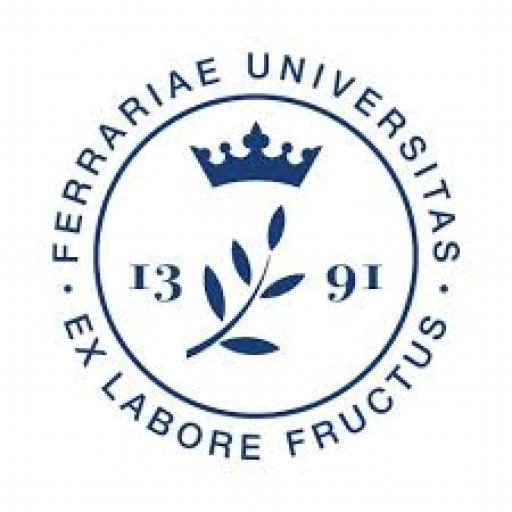Photos of university / #uni_southampton
Programme description: Marine Geology and Geophysics at the University of Southampton offers an in-depth exploration of the Earth's beneath the ocean, focusing on the geological and geophysical processes shaping our planet's underwater environment. This comprehensive programme combines theoretical knowledge with practical skills, preparing students for careers in academia, industry, environmental management, and research institutions. Students will study a wide range of topics, including seafloor geology, marine geophysical techniques, tectonics, sedimentology, geodynamics, and oceanography. The course emphasizes the importance of understanding submarine geology and geophysical data, enabling students to interpret complex datasets and contribute to understanding Earth's processes. Practical fieldwork is a key component of the programme, offering hands-on experience in acquiring and analyzing marine data through surveys, sampling, and remote sensing technologies. The programme also provides training in geological mapping, seismic interpretation, and geophysical data processing, equipping graduates with skills highly sought after in sectors such as oil and gas exploration, environmental consultancy, and marine resource management. Students will learn about the environmental challenges facing our oceans, including climate change impacts, ocean floor hazards, and conservation issues, fostering a well-rounded understanding of marine geology's role in sustainable development. The university's state-of-the-art laboratories, research vessels, and partnerships with industry ensure that students gain exposure to the latest technologies and real-world applications. The programme culminates in a research project or dissertation, allowing students to investigate a specific aspect of marine geology or geophysics in depth, often involving fieldwork and data analysis. Graduates from the programme are well-equipped to contribute to scientific research, policy development, and consultancy work related to Marine Geology and Geophysics, supporting the sustainable use and preservation of ocean resources worldwide.
The Marine Geology and Geophysics program at the University of Southampton offers a comprehensive and in-depth exploration of the Earth's subsurface beneath the oceans, focusing on the geological and geophysical processes that shape our planet's underwater environments. This innovative course is designed to equip students with a strong foundation in the fundamental principles of marine geology, geophysics, and seismic methods, alongside practical skills in data analysis, interpretation, and research techniques applicable to marine scientific investigations.
Throughout the programme, students will study a diverse range of topics including ocean floor formation, plate tectonics, sedimentology, marine geophysical survey methods, seismic imaging, and the processes underlying earthquake and tsunami generation. The curriculum integrates theoretical knowledge with practical laboratory sessions, fieldwork, and computer-based modelling, enabling students to develop a hands-on understanding of marine geological phenomena and geophysical data processing.
The course also emphasizes the application of modern technology in marine research, such as marine seismic surveys, remote sensing, and geophysical instrumentation. Students gain experience working with actual datasets and learn how to interpret complex geophysical and geological data to solve real-world problems related to resource exploration, environmental monitoring, and hazard assessment in marine settings.
Research plays a pivotal role in the programme, with students engaging in independent projects and group assignments that foster critical thinking and problem-solving abilities. These projects often involve collaboration with industry partners and research institutions, providing valuable insights into current challenges and innovations in marine geosciences.
Graduates of the Marine Geology and Geophysics program are well-prepared for careers in academia, industry, or government agencies involved in resource development, environmental protection, and hazard mitigation. They benefit from the university’s strong ties to the maritime sector and world-renowned research facilities, including cutting-edge seismic laboratories and oceanographic research ships.
Overall, the program combines rigorous academic instruction with practical experience, fostering the skills necessary to contribute to the sustainable management of marine resources and the advancement of scientific understanding of the ocean's geological and geophysical processes. It offers a unique opportunity for students passionate about the marine environment and Earth sciences to pursue a rewarding career dedicated to exploring the mysteries of the underwater world.
A minimum of 120 credits must be completed to qualify for the degree. Candidates are required to undertake core modules in Marine Geology, Marine Geophysics, and Marine Sedimentology to establish foundational knowledge in the discipline. In addition, students should select optional modules in areas such as Marine Geohazards, Seafloor Mapping, and Marine Geotechnics, allowing for specialization. Practical training through laboratory sessions and fieldwork is integral to the programme to develop analytical skills and hands-on experience. A significant component of the programme involves a research project, which encourages students to apply theoretical knowledge to real-world marine geological and geophysical problems, culminating in a dissertation report. To progress, students must pass all core modules with a minimum of a 50% mark; some modules may have higher thresholds. Assessment methods include written examinations, coursework assignments, practical reports, and presentations. The programme prerequisites typically include a prior qualification in a relevant subject such as Earth Sciences, Geology, Geography, or Environmental Sciences, with a strong emphasis on scientific and mathematical skills. International students may also need to demonstrate proficiency in English, usually through IELTS or equivalent tests. Throughout the course, students are expected to adhere to the university's academic regulations and participate actively in lectures, seminars, and field activities. The degree aims to prepare graduates for careers in offshore oil and gas, environmental consultancy, marine resource management, or further research, providing essential skills in data analysis, sediment sampling, data interpretation, and geophysical survey techniques. The curriculum is regularly reviewed to ensure it remains aligned with the latest developments and industry standards in marine geology and geophysics.
The University of Southampton offers a comprehensive financing scheme for students enrolled in the Marine Geology and Geophysics program. Tuition fees vary depending on the student's domicile; for home students, the annual fee is approximately £9,250, while international students may pay significantly higher fees, often exceeding £18,000 per year. To support students financially, the university provides a range of scholarships, bursaries, and financial aid options specifically targeted at STEM disciplines, including Earth sciences. These include merit-based scholarships awarded based on academic achievement, as well as need-based grants designed to assist students from diverse economic backgrounds.
In addition to university-funded scholarships, students are encouraged to explore external funding opportunities such as government-sponsored loan schemes and industry sponsorships. The UK government offers student loans for eligible residents, which can be used to cover tuition fees and living expenses, repayable after graduation once income thresholds are met. International students may seek scholarships from their home governments, regional organizations, or international bodies that promote scientific research and education.
Living costs are also an important aspect of financing, with estimated annual expenses for accommodation, food, transportation, and study materials amounting to approximately £10,000-£12,000 for domestic students and higher for international students. The university's central location in Southampton offers students access to part-time work opportunities, which can help offset living costs, though students are advised to balance employment with their academic commitments.
The university provides detailed guidance through its Financial Support Office, which assists students in understanding the full scope of available funding options and application procedures. Many students also benefit from fee payment plans, enabling them to spread payments over the academic year, easing the financial burden. For postgraduate students, there are specific research council grants and fellowships available, supporting research-intensive components of the Marine Geology and Geophysics degree.
Overall, the University of Southampton aims to make education accessible by offering diverse financing options and comprehensive support services. Prospective students are advised to consult the university’s official website and financial aid office early in the application process to explore eligibility and application deadlines for various funding opportunities.
The Marine Geology and Geophysics programme at the University of Southampton offers students a comprehensive education in understanding the physical and geological processes that shape the Earth's oceans and seabed. This programme combines theoretical knowledge with practical skills, providing a strong foundation in geophysical techniques, seismic data interpretation, marine sedimentology, and geological mapping. Students will explore topics such as plate tectonics, marine mineral resources, seafloor spreading, and submarine landslides, equipping them for careers in academia, industry, or environmental consultancy.
The curriculum includes core modules in geophysics, marine geology, geophysical data analysis, and fieldwork techniques. Students also have opportunities to undertake research projects, often collaborating with industry partners or conducting field studies in marine environments. The programme emphasizes the use of state-of-the-art equipment such as seismic reflection systems, multi-beam echo sounders, and sub-bottom profilers, enabling students to gain hands-on experience in data acquisition and analysis.
The School of Ocean and Earth Science at the University of Southampton has a strong reputation for research excellence in marine geology and geophysics, providing students with access to cutting-edge facilities and expertise. Graduate employability is enhanced through placements, industry partnerships, and opportunities for international fieldwork. Graduates of the programme have gone on to work in sectors such as oil and gas exploration, environmental consultancy, marine conservation, and academia.
The university’s location on the south coast of England provides an excellent base for marine research, with proximity to diverse marine environments and access to field sites such as the Solent, the Atlantic Ocean, and the Channel. The programme is designed for students with an interest in earth sciences, geography, and oceanography, and aims to develop analytical, technical, and research skills necessary for understanding and managing the complex processes impacting the marine environment.
Overall, the Marine Geology and Geophysics programme at the University of Southampton is tailored to nurture skilled geoscientists capable of addressing contemporary challenges related to the sustainable use of marine resources, seismic hazard assessment, and understanding the Earth's underwater landscapes.










